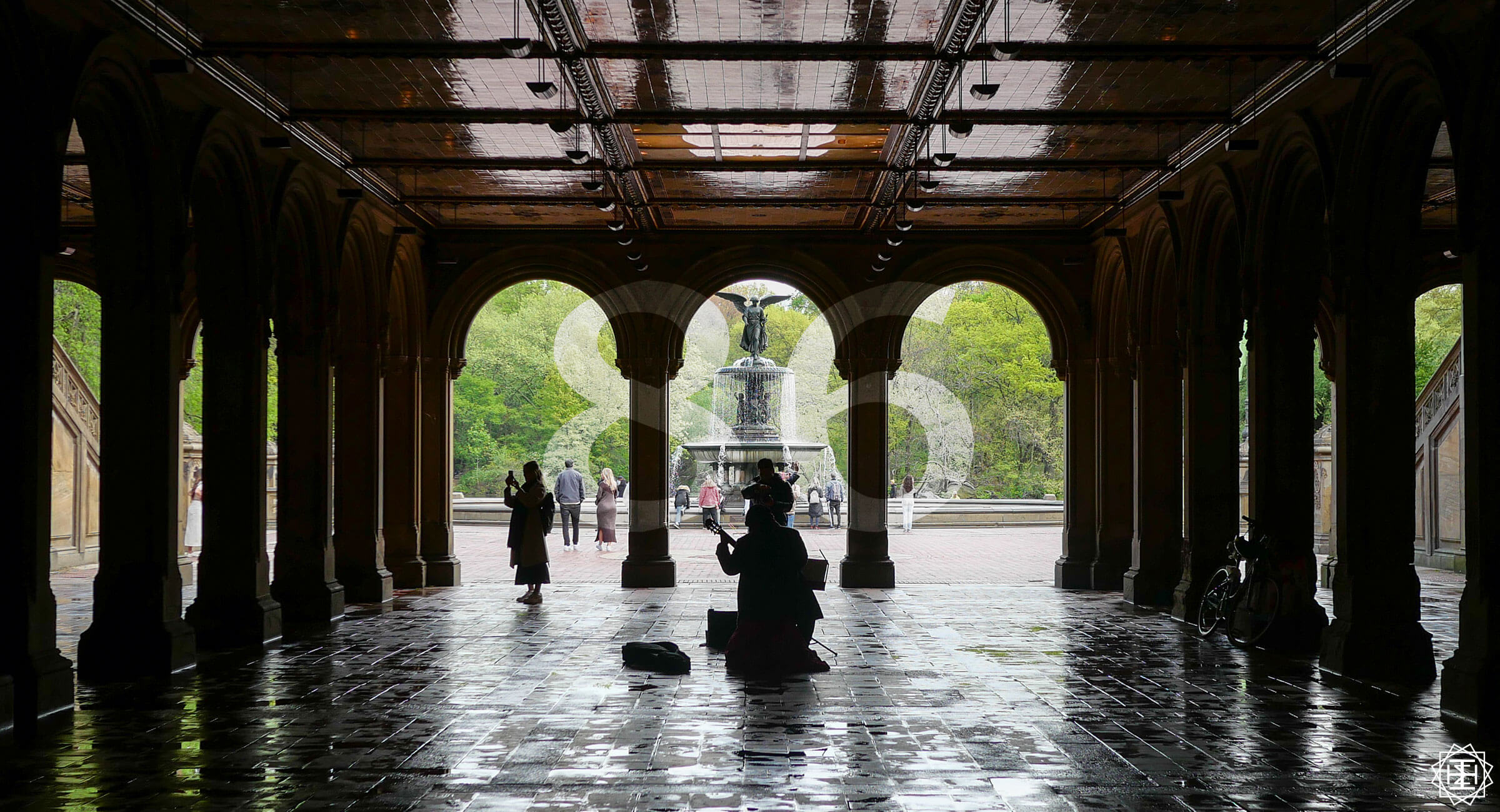Prayer of a Poor Person in Need – Translating Psalm 86
Amidst being attacked by arrogant and violent people, our psalmist turns to God. They appeal to his mercy, strength, and glory. Even in the midst of being overwhelmed by their attackers, they reassert their trust in God. They desire to follow the Lord’s way and for their hearts to be united with God.
Psalm 86
Prayer of a Poor Person in Need
A Prayer of David
1Bring low Your ear, LORD, and answer me, * for I am poor and needy. 2Preserve my soul, for I am faithful, * my God, save Your servant who trusts in You. 3Be gracious to me, Lord, * for I cry to You all day long. 4Fill Your servants soul with rejoicing, * for I lift my soul, Lord, to You. 5For You, Lord, are good and ready to forgive, * with abundant mercy for all who call upon You. 6Turn Your ear, LORD, to my prayer, * and listen to my pleading voice. 7On the day of trouble, I will call on You, * for You will answer me. 8There are none like You among the gods, * Lord, no works compare with Yours. 9All the nations You have made will come, † they will worship before You, Lord, * and they will glorify Your name. 10For You are great, and do wonderful things, * You alone are God. 11Teach me, LORD, Your way, * and I will walk in Your truth. Be united with my heart, * and it will fear Your Name. 12I will give You thanks, Lord, with all my heart, * and I will glorify Your name forever. 13For great is Your mercy over me, * that You saved me from the depths of Sheol. 14God, arrogant people are attacking me, † these violent people want my life, * and they have no desire for You. 15But You, Lord, are a compassionate and gracious God, * slow to anger, and overflowing with mercy and faithfulness. 16Turn towards me and be gracious with me, † grant Your strength to Your servant, * and save my life, Your servant's child. 17Make me into a sign of Your goodness, † upon seeing it those who hate me will be ashamed, * because You, LORD, have helped and comforted me.
Call and Response
The opening seven verses of this psalm express, in part, the psalmist’s relationship with their Lord. Again and again, we read of them praying and crying out. Again and again, we see the Lord implored to turn, listen, and hear them.
Within this back and forth is a very honest and meek portrayal of themself. “For I am poor and needy,” “I cry all day long,” and “listen to my pleading voice.” These express growing frustration and a sinking into the depths. They know their situation, and it appears to continue to get worse. As with most psalms, we don’t know the details of what is going on.
God is there with them. They are reminding God that they have been good, gracious, and forgiving before. They are imploring God to listen. It seems like God has not been hearing their voice. This becomes clear if we look at verses one and seven side by side.
Bring low your ear, LORD, and answer me... I will call on you, for you will answer me.
This psalm is attributed to David. Yet nothing in the psalm points to specifics we know about his life. The psalmist instead expresses things that most of us can relate to at some point in our lives. In the opening section, we can feel their frustration at not being heard by the Lord. It could be that the Lord hears but remains silent. Silence from God is an all too common, expected, and universal experience.
Praising of God
There is a decided shift in tone as we move into verses eighth to thirteen. From pleading and begging for a response to praising the uniqueness of God. This kind of praise is very common across the psalms. Nestled within the praise are two hints of what is to come in the next section: other nations and a desire to follow God’s way.
It is possible to praise God without comparing him to other gods or the gods of other nations. Yet they choose to dive immediately into this comparison after asking God to listen. This can help us understand the priorities of the psalmist and a bit of the situation they are in.
They continue to build. Yes, there are other nations with lesser gods. Our psalmist wants to be taught the way of God. So they can live the way their God does. This is a plea that many of us make in dire moments. God, if you help me, I’ll do/live however you want me to. We are in good company in those moments.
The last praise in this section is also a reminder. A reminder for both God and the psalmist. In a previous situation, God had saved them from death – the depths of Sheol. This was a time before ideas of the afterlife were well-developed, there was simply a place where the dead went beneath the earth. The psalmist calls being saved from this place a great mercy, and calls on God to do it again.
Be united with my heart
It was challenging to render the second half of verse 11. Part of this comes from our commitment to follow the structure of the Latin. That has four lines for this verse (instead of three like many contemporary translations). It was the third line that was not that clear to me. There was a joining or uniting going on.
Many other translations simply say, ‘Unite my heart to fear your name.’ This was far too confusing for me. Unite it to what? Was it simply asking God to make whole a broken heart, or was it asking to have it united to something/someone. The context is the opening of this verse, “Teach me, LORD, your way,” and the opening of the next verse, “I will give you thanks, Lord, with all my heart.” Each of these is explicit about who the action is in relation to. This textual context made me feel comfortable connecting this uniting action with God.
Teach me, LORD, your way, and I will walk in your truth. Be united with my heart, and it will fear your Name.
Conflict is underway
Our psalmist finally shares what is going on. There is a group of arrogant and violent people attacking them. These people are from another nation. We know this because they have no desire for God. Earlier, the psalmist had compared the Lord with all the other gods and praised the many ways the Lord stood out. Here we see that this group has no desire for the only true God. Therefore, they are foreigners of some kind.
In the closing two verses, the psalmist explains their need. They need God to be gracious, to share their strength with them, and to be made into a sign of goodness. A sign that would shame those attacking them. There is nothing further telling us if or how God has followed through on this request. We simply end with the author letting us know that if God comes through, it will be clear to all that they have survived because of the Lord’s help and comfort.
Make me or Show me
The opening of this last verse was another place I had to rest. Through the majority of the psalm up to this point, we have a passionate plea for God to, in part, transform the psalmist. Then, at the last verse, many others have rendered the text in a weird way: “Show me.” The psalmist is now asking God for an external good sign – that, upon seeing it, would shame these arrogant and violent people.
That doesn’t make sense to me. What makes far more sense is that the psalmist is making their final plea. Make me a sign of your goodness (do all that I asked above), and your strength and glory through me will shame them. Then they will know you have been helping and comforting me this whole time.
Make me into a sign of your goodness, upon seeing it those who hate me will be ashamed, because you, LORD, have helped and comforted me.
Selecting a Title
The Latin title given to this Psalm is ‘Pauperis in Rebus Adversis Oratio’ or ‘Prayer of a Poor Person amidst Adversity’. For our title, we’ve chosen to focus instead on their need for God. As is stated in the first verse – they are poor. The second description they use for themselves is that they are also in need. The rest of the psalm unfurls from this point as they oscillate between praising God and asking for help. For this reason, we have chosen a title which reflects these two opening descriptions – ‘Prayer of a Poor Person in Need’.
Initial Translation Finished 10 August 2023
Notes
Translations for Urban Monastic are open to refinement and improvement. This has been translated. Yet, this is a reminder that no translation is ever complete. Cultures change, languages change, we better understand the source texts and languages, and adapt them as they get used in context. We will continue to refine and enhance our translations. If you are interested in helping, please let us know!
Photo Credit
Paul Prins on 26 April 2023 in New York City, United States.


